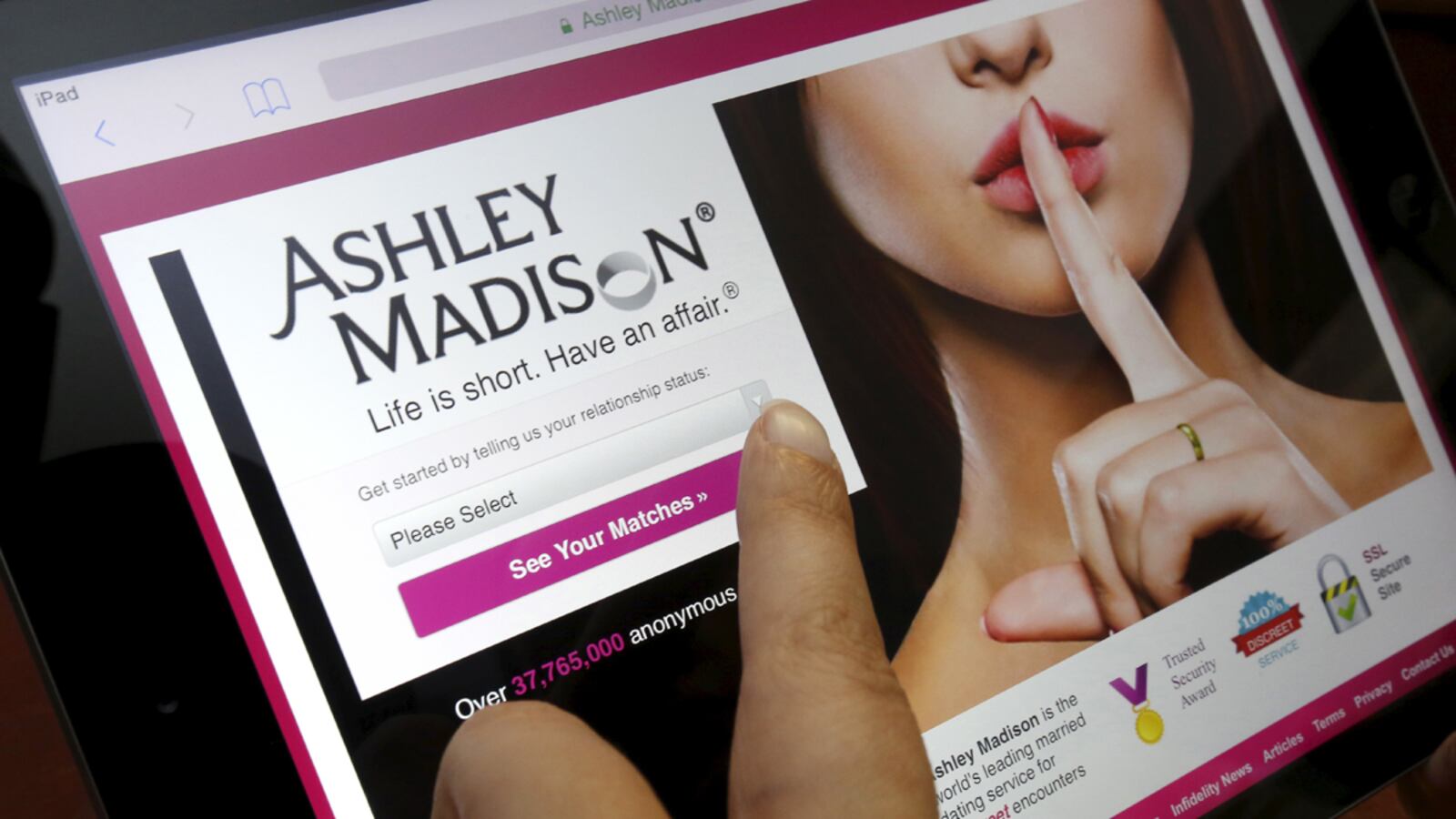Yet more evidence surfaces that entering your name and address and credit card details into a website when looking to start a secret extra-marital affair is probably a bad idea.
In July last year, Ashley Madison, the affair-enabling website that promised promised promised to hide its users’ identities, was the victim of a massive hack that saw personal details—including email addresses—of many of its 32 million users revealed.
Understandably aggrieved, some of those would-be cheaters decided to sue Ashley Madison for their egregious failure to protect their data. Particularly outraged were those men (and they were mostly men; it turned out Ashley Madison was also creating fake female profiles to lure guys to sign up) who, gripped by remorse and fear, had reportedly paid $19 for a “full delete” option that has since turned out to be anything but.
Now the plaintiffs (there are thought to be about 50 of them, the St. Louis Post-Dispatch reported earlier this year) in a class action suit in Missouri have been hit with more unwelcome news—in order to sue Ashley Madison for not protecting their identity, they are going to be required to identify themselves on legal documents if they want to be “named plaintiffs.”
In other words, they can’t be John Does.
According to Ars Technica, citing several legal documents from the case it has uploaded, the judge, agreed “with Ashley Madison's owners, (and) ruled that only in extraordinary circumstances may civil litigation proceed under fake names, like in cases such as sex crimes and suits about juveniles.”
Little surprise that one John Doe plaintiff has already removed himself from the case.
Ars Technica adds that the judge “has given the class, so far using unnamed plaintiffs, until June 3 to lodge their official class-action complaint and to allow those suing to determine whether they wish to be named plaintiffs or drop out. The advantages of being a named plaintiff are largely monetary. Those named in class-action cases are usually rewarded with tens of thousands of dollars in a settlement. However, data breach cases traditionally bring little financial reward to class members, yet they give large payouts to prevailing plaintiffs’ attorneys.”
Of the 50 or so plaintiffs who filed lawsuits, about 40 used “John Doe” or some equivalent pseudonym, according to local reports.
At this stage, a nod and a wink over the photocopying machine is probably starting to look like a better and better idea.






